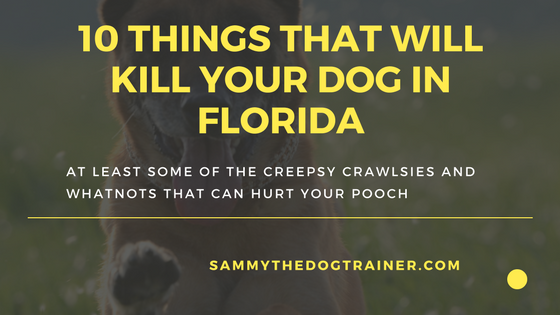The Puppy Cast- A Podcast about Puppies

The Puppy Cast: A Podcast about The Decision to Buy a Puppy
Hey all, it’s Sammy the Dog Trainer here for your semi-regular podcast. I haven’t done one in a while as I’ve been finishing up writing a couple novels and the holidays take over, as everyone probably knows. Ooh, if you get a chance, check out my new novel I published- Deliverance by Samantha Schinder. It’s on Amazon. It’s not about dogs, but I dunno, it’s still kind of cool.
But moving onto to the subject of dogs today, I wanted to talk to you a little bit about puppy rearing and the importance of the puppy stage in a dog’s life. I know a lot of people choose to buy a puppy instead of adopt simply for the cuteness factor. They want an adorable, tiny little puppy, which is fine if that’s your preference. Puppies are a lot of work to raise and teach proper house manners and obedience and whatnot.
The thing I wanted to address today is, sometimes I get people who talk to me about wanting a puppy because they want to make sure the puppy doesn’t have any behavioral issues. Maybe they’ve had a bad experience with a previous dog or what not. They think if they have control of the puppy’s life from 8 weeks on, (8 weeks is the youngest acceptable age to separate a normal litter from its mum), they think that all will be well. They will never have any behavioral issues.
Unfortunately, I have to tell you this is a fallacy. No matter what you do- adopting a rescue dog, getting a puppy from a breeder, you are going to run into some behavioral snags. It’s simply natural. There are always growing pains with a new dog, no matter at what age you get them.
Now that being said, from a behavioral standpoint, there are some pivotal periods in a puppy’s development which can alter things into their adulthood. They go through a couple fear imprinting stages in the early weeks of their lives. Teaching a dog manners, doing cognitive development games, and socializing are all important parts of good puppy raising. These do set your dog up for success later in life. It’s especially important if you want to compete with your dog eventually in sports like Schutzhund, agility, or rally…things of that nature.
Now here’s a hard reality to come to terms with- even if you do everything right with a puppy, he or she might still have issues as an adult. I’m not a human parent, but I think this can be said universally of all parenting. That doesn’t mean the issues are irresolvable or anything like that. But you have to expect them, even if you bought a puppy from a breeder.
Dogs usually go through this angsty teen/terrible twos period around 9 months to a year and a half of age. During this time period owners tend to wonder what demon has possessed their cute little puppy and will he ever go back to the lovable dog he used to be. The answer is yes, they will mellow out if you keep a good routine and discipline structure in the dog’s life. Just like human babies, fur babies go through some ruff (get it ruff?) periods in life. Be patient. Keep going.

Here’s another puppy fallacy I get a lot: I bought a puppy because I wanted him or her to get along with other dogs well. If I start them young they will love other dogs…mmm MAYBE. Maybe not. Our society has this weird notion that a dog is only healthy if he or she likes other dogs. The whole concept of doggy daycares and dog parks and what not is a bit of a newfangled thing in the past couple decades. Not that those aren’t useful tools for dogs who enjoy interacting with other dogs, but it’s not unhealthy for a dog to not prefer the company of other dogs.
So a little bit of a history lesson- dogs entered into a symbiotic relationship with people about 14 to 33 thousand years ago depending on which archaeologist you decide to go with. That’s a long time for dog to be dog and not Canis lupus or the wolf. In fact dog and 20th generation silver foxes are thought to be the only large carnivores to ever be completely domesticated by man. There are genetic alleles in their digestive systems that indication such. Your cat…yeah hate to break it to you, but Mister Boots the Cat, not completely domesticated. But I think you probably knew that.
Ok, so you have tens of thousands of years breeding dogs for specific purposes- herding, pastoral protection, lurching, coursing, retrieving etc. For certain dog jobs, it was necessary for them to get along with other dog. Mushing for instance- a sled dog works as part of a team of sled dogs, so they tend to retain more doggy social skills than say, a dog that was bred for protection or driving away other animals from a herd. That’s not a hard and fast rule though. Some protection dogs love to play with other dogs. Some sled dogs hate other dogs. Guess what? It’s all completely normal. Just like people have tendencies to like or dislike the company of other people, so too do dogs. In the breeding scheme of things, it wasn’t super important to people until the past couple decades to have doggy daycare acceptable behavior.
That being said, all dogs can behave on the leash around other dogs. It’s just a matter of good obedience. Will they want to play or play nicely off the leash? That has to be determined on a case by case basis. If your dog is well behaved on the leash in crowds with other dogs also on the leash, but doesn’t do well at off leash interaction- is there something wrong with your dog? Nope. That’s just evolution at play.
So that’s another myth off the table. Here’s another hard truth- you might not find out that your dog does not prefer the company of other dogs until he or she is an adult. Even if you socialize them correctly. Even if you do all the so-called “right things.” Their adult preference begins to show itself in that 9 months to year and a half stage we talked about.
So all these things considered, I think this points us in a very specific way- adoption. Here at Camp Sammy, we’re a huge proponent of rescue and adoption. And I get it- I really do. You’re a breed enthusiast, or your want to raise a puppy for a specific job or sport. That’s totally cool. But if you’re just the average family and want a good pet, I’d urge you to consider adoption. Most rescue organization already have a good idea of the personality and preferences of each of their rescue dogs. They can help you find the perfect companion for your family. Ooh and a bonus—many of the dogs in those situations are house broken already or well on their way to being so. Of course this isn’t always the case, but you can ask.
Or you can hire a dog trainer to go to the local kill shelter and assess dogs. I’ve done this before, although it hurts my soul every time I have to go there. That’s where I plucked my own beloved Whuffo dog out of- the local kill shelter. I’m a professional, so I knew exactly what to look for. If you aren’t sure, ask a knowledgeable friend or hire a trainer to come with you to help. Many times the volunteers will be knowledgeable about the dogs for adoption and will discuss their file histories with you as well.
Now in a perfect world, there would be no animal shelters and everyone would have to buy dogs if they wanted them. But we don’t live in a perfect world. We live in this world. This world where thousands upon thousands of dogs need homes or face euthanasia. Great dogs. Loving dogs. Dogs who would be perfect companions. Puppies even if you have to have that baby time, although all puppies do grow up, so if the cuteness of the baby stage is the only reason you’re getting a puppy, I would urge you to reflect on the decision first. So yeah, unless you are involved in showing or a specific dog sport or are a breed enthusiast, I urge you to consider adoption instead. It was the best decision I ever made. Could be for you too.
So that’s all the time we have for today. If you want more info check us out on sammythedogtrainer.com. There’s all kinds of articles and info on there. We also have a couple online courses on Udemy, one on basic dog training concepts and the other is how to housebreak your puppy. So those are available too. Thanks for listening and supporting small, veteran owned business.
Cheers!








Comments
Post a Comment